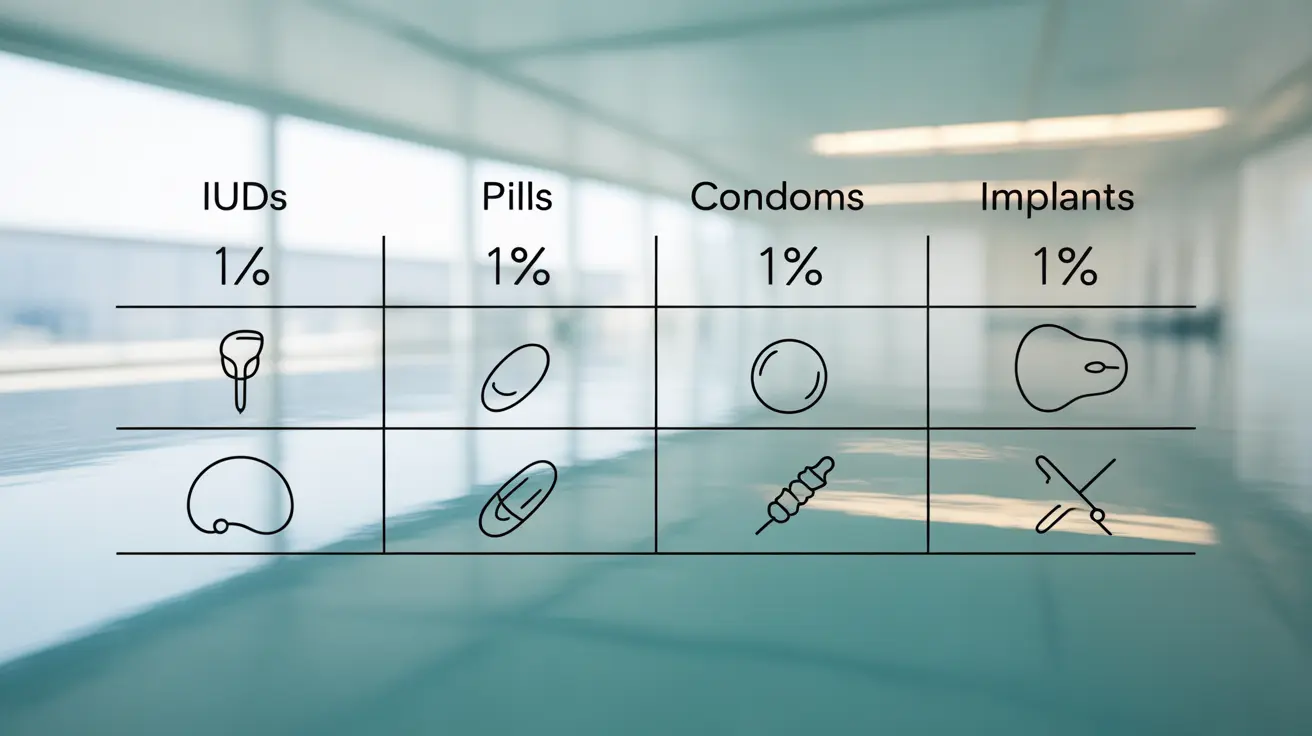Choosing the right birth control method is a significant healthcare decision that requires careful consideration of various factors, from effectiveness to personal health conditions. Whether you're exploring contraception for the first time or reconsidering your current method, having the right information is crucial for making an informed choice.
This comprehensive guide will address the most important birth control questions to help you understand your options and make the best decision for your reproductive health.
Understanding Birth Control Effectiveness
Different birth control methods offer varying levels of protection against pregnancy. Here's how they compare:
Long-Acting Reversible Contraceptives (LARCs)
LARCs, including IUDs and implants, are among the most effective options with over 99% effectiveness. These methods require minimal maintenance and can provide protection for several years.
Hormonal Methods
Birth control pills, patches, and rings are about 91-94% effective with typical use. Their effectiveness largely depends on consistent and correct usage.
Barrier Methods
Condoms, diaphragms, and cervical caps offer 85-98% effectiveness when used properly. They have the added benefit of providing STI protection in many cases.
Health Considerations and Contraception
Before selecting a birth control method, several health factors should be evaluated:
- Medical history
- Family history of certain conditions
- Smoking status
- Age
- Blood pressure
- History of blood clots
- Future pregnancy plans
Understanding Side Effects and Safety
Different birth control methods can affect individuals differently. Common considerations include:
Hormonal Birth Control Effects
Users might experience changes in:
- Menstrual cycles
- Mood
- Weight
- Skin condition
- Blood pressure
Non-Hormonal Options
These methods typically have fewer systemic side effects but may require more active management for effectiveness.
Cost and Accessibility Factors
The financial aspects of birth control vary significantly:
Insurance Coverage
Many insurance plans cover various forms of birth control, though coverage levels differ. Some methods have higher upfront costs but may be more cost-effective long-term.
Availability Options
Access to different methods can vary based on:
- Geographic location
- Healthcare provider availability
- Prescription requirements
- Local regulations
Frequently Asked Questions
**What are the most effective types of birth control and how do they compare in preventing pregnancy?** IUDs and implants are the most effective at over 99%, followed by hormonal methods at 91-94%, and barrier methods at 85-98% with perfect use.
**What health conditions should I consider before choosing a birth control method?** Important considerations include history of blood clots, high blood pressure, smoking status, migraines, liver conditions, and breast cancer history. These factors can affect which methods are safe for you.
**What are the common side effects of birth control pills and when should I consult a doctor?** Common side effects include spotting, nausea, breast tenderness, and mood changes. Consult a doctor if you experience severe headaches, chest pain, severe abdominal pain, or unusual leg pain.
**How does birth control protect against sexually transmitted infections (STIs)?** Only barrier methods like condoms provide STI protection. Hormonal methods and IUDs do not protect against STIs, making it important to consider dual protection if STI prevention is needed.
**How do cost, accessibility, and convenience vary among different birth control options?** Costs range from low-cost options like condoms to higher upfront costs for long-term methods like IUDs. Accessibility varies based on insurance coverage, healthcare provider availability, and local regulations. Convenience factors include daily versus long-term management requirements.




